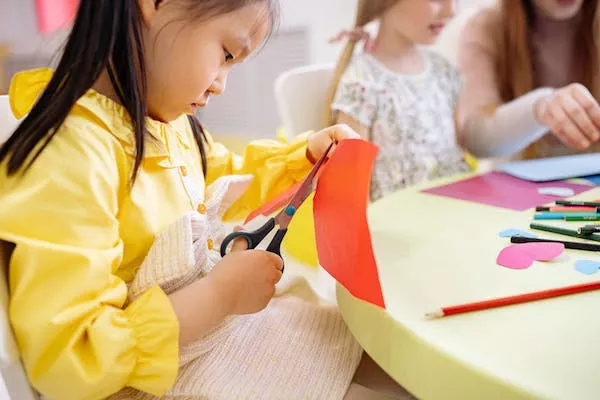Puzzles have been a popular pastime for centuries. They come in many different forms, from jigsaw puzzles to crossword puzzles and brain teasers. Puzzles are not just a fun way to spend time, but they also have many benefits when it comes to cognitive development.
Cognitive development refers to the process of acquiring knowledge, skills, and abilities that enable us to understand and interact with the world around us. This includes things like memory, attention, language, problem-solving, and decision-making. Puzzles can help with cognitive development in several ways, which we will explore in more detail below.
Improving Memory
Memory is a crucial aspect of cognitive development. Without memory, we would not be able to learn or retain information. Puzzles can help improve memory by requiring us to remember visual details and patterns. For example, completing a jigsaw puzzle requires us to remember the shapes and colors of each piece and how they fit together. As we work on the puzzle, we reinforce these memories and strengthen our ability to recall visual information.
Puzzles can also help with short-term memory. Many puzzle games involve remembering sequences or patterns. For example, a game like Simon involves pressing buttons in a particular order based on a sequence of lights and sounds. This requires us to hold the sequence in our memory and recall it accurately. Over time, this can help improve our ability to remember information in our daily lives.
Developing Problem-Solving Skills
Problem-solving is another crucial aspect of cognitive development. It involves identifying problems, analyzing information, and generating solutions. Puzzles can help develop problem-solving skills by requiring us to find solutions to complex challenges.
For example, a crossword puzzle requires us to think critically about word meanings and relationships between words. A jigsaw puzzle requires us to look at the shapes and colors of the pieces and figure out how they fit together. As we work on puzzles, we learn to break down complex problems into smaller, more manageable parts and develop strategies for solving them.
Improving Attention and Focus
Attention and focus are essential skills for cognitive development. They allow us to concentrate on tasks and filter out distractions. Puzzles can help improve attention and focus by requiring us to concentrate on the task at hand and ignore other stimuli.
For example, completing a jigsaw puzzle requires us to focus on the individual pieces and how they fit together. We need to ignore other stimuli, such as background noise or visual distractions, that might interfere with our ability to complete the puzzle. Over time, this can help improve our ability to maintain attention and focus in other areas of our lives.
Boosting Creativity
Creativity is another important aspect of cognitive development. It involves generating new ideas and solutions and thinking outside the box. Puzzles can help boost creativity by encouraging us to approach problems from different angles and think creatively about solutions.
For example, a brain teaser puzzle might involve finding a way to transport a certain number of items across a river using only a small boat. This requires us to think creatively about how to utilize limited resources and find new solutions to complex problems.
Promoting Cognitive Flexibility
Cognitive flexibility refers to the ability to adapt to changing situations and switch between different modes of thinking. It is an essential skill for cognitive development and is vital in many areas of life, from work to social interactions. Puzzles can help promote cognitive flexibility by requiring us to shift our thinking and adapt to changing circumstances.
For example, a puzzle game might involve switching between different types of puzzles or changing the rules halfway through the game. This requires us to be flexible in our thinking and adapt quickly to new situations.
Increasing Self-Esteem and Confidence
Self-esteem and confidence are important aspects of cognitive development. They allow us to believe in ourselves and our abilities, which can positively impact many areas of our lives. Puzzles can help increase self-esteem and confidence by providing a sense of accomplishment and satisfaction when we complete them.
For example, completing a challenging puzzle or brain teaser can give us a sense of pride in our abilities and boost our self-esteem. This can carry over into other areas of our lives, such as work or relationships, and help us approach challenges with greater confidence.
Conclusion
Puzzles are not just a fun way to pass the time – they also have many benefits when it comes to cognitive development. From improving memory and problem-solving skills to boosting creativity and promoting cognitive flexibility, puzzles can help us develop essential cognitive skills that are crucial for success in many areas of life. Whether you prefer jigsaw puzzles, crossword puzzles, or brain teasers, there is a puzzle out there for everyone. So next time you’re looking for a fun and engaging way to challenge your mind, consider picking up a puzzle and putting your cognitive skills to the test!


